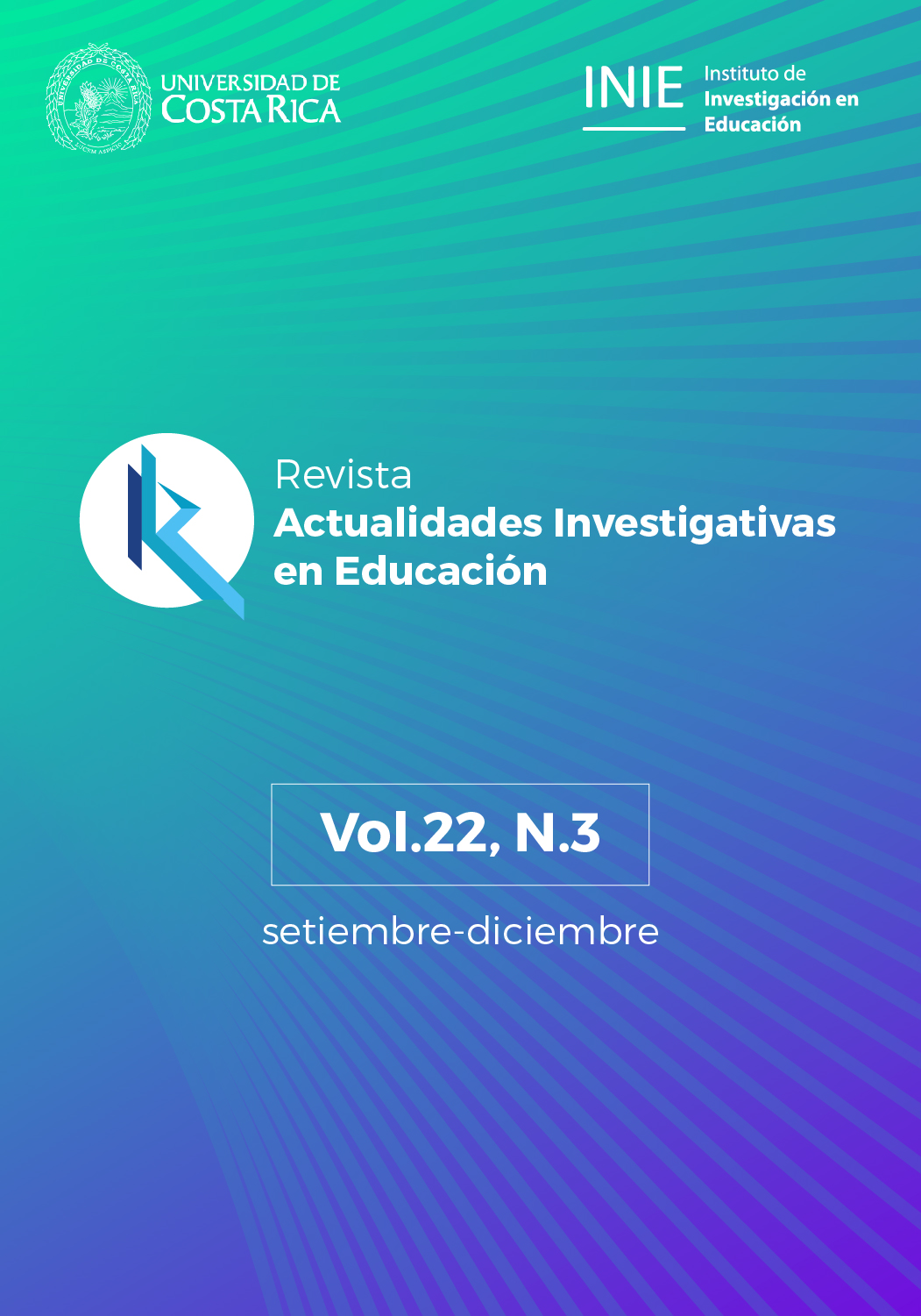Abstract
This article presents the results of a perception study carried out with 74 students of the English Teaching Career in the Atlantic Campus of University of Costa Rica during the first academic year 2020, to identify how the students perceived the virtualization of teaching caused by the pandemic. This research allowed us to determine that the teaching modality implemented was emergency remote education, which was intended not to expose students and teachers to face-to-face teaching. The methodology is based on a quantitative approach of descriptive scope that studies and interprets the students' perceptions based on the information obtained in an electronic questionnaire. The results indicate that students know about technology applied to teaching, which allows them to participate in educational activities in a virtual context, a situation that encourages individual work and a better organization of tasks, thanks to their ability to adapt and a responsible attitude towards study. Some educational activities perceived as useful were the exchange of documents, audiovisual material, online practices, and oral presentations. There were external factors that could limit the students' academic performance, such as Internet access and their physical and mental condition reflected in the stress and fatigue caused by studying daily behind a screen, with long classes and extensive work. Therefore, the I-2020 teaching process was perceived with positive and negative aspects on the part of the students, who had to face it to meet the proposed learning objectives.
References
Arias, Carmen Aura. (2006). Enfoques teóricos sobre la percepción que tienen las personas. Horizonte Pedagógico. 8(1). https://horizontespedagogicos.ibero.edu.co/article/view/08101
Comisión Económica para América Latina y el Caribe (CEPAL) y Oficina Regional de Educación para América Latina y el Caribe de la Organización de las Naciones Unidas para la Educación, la Ciencia y la Cultura (OREALC/UNESCO Santiago). (2020). Informe COVID-19, CEPAL-UNESCO: La educación en tiempos de la pandemia de COVID-19. https://www.cepal.org/sites/default/files/publication/files/45904/S2000510_es.pdf
Francis, Susan. (1-5 de junio, 2020). La Universidad de Costa Rica y su proceso de virtualización [Ponencia]. Seminario Virtual: Tecnologías de la información orientadas al desarrollo docente.
Hernández, Roberto., Fernández, Carlos. y Baptista, Pilar. (2014). Metodología de la Investigación (6ta. ed.). McGraw Hill.
Hodges, Charles B., Moore, Stephanie., Lockee, Barbara B., Trust, Torrey. y Bond, Mark. (2020) The Difference between Emergency Remote Teaching and Online Learning. Educause. https://er.educause.edu/articles/2020/3/the-difference-between-emergency-remote-teaching-and-online-learning
Ibáñez, Fernanda. (2020). Educación en línea, Virtual, a Distancia y Remota de Emergencia, ¿cuáles son sus características y diferencias? Observatorio del Instituto para el Futuro de la Educación. https://observatorio.tec.mx/edu-news/diferencias-educacion-online-virtual-a-distancia-remota
Kikut, Lorena. (2020). Análisis de Resultados de la evaluación de la virtualización de cursos en la UCR ante la pandemia por COVID - 19. Perspectiva Estudiantil. Centro de Evaluación Académica, Universidad de Costa Rica. https://www.cea.ucr.ac.cr/images/stea/Eval_Doc/Analisis_Virtualizacion__I-2020.pdf
Miguel, José Antonio. (2020). La educación superior en tiempos de pandemia: una visión desde dentro del proceso formativo. Revista Latinoamericana De Estudios Educativos, 50(ESPECIAL), 13-40. https://doi.org/10.48102/rlee.2020.50.ESPECIAL.95
Portillo, Samuel Alejandro., Castellanos, Lidia Isabel., Reynoso, Óscar Ulises. y Gavotto, Omar Iván. (2020). Enseñanza remota de emergencia ante la pandemia Covid-19 en Educación Media Superior y Educación Superior. Propósitos y Representaciones, 8(SPE3), e589. http://dx.doi.org/10.20511/pyr2020.v8nSPE3.589
##plugins.facebook.comentarios##

This work is licensed under a Creative Commons Attribution-NonCommercial-NoDerivatives 4.0 International License.
Copyright (c) 2022 Andrea Ramírez Zúñiga, Nathalia Solís Pérez, Elvia Ureña Salazar







